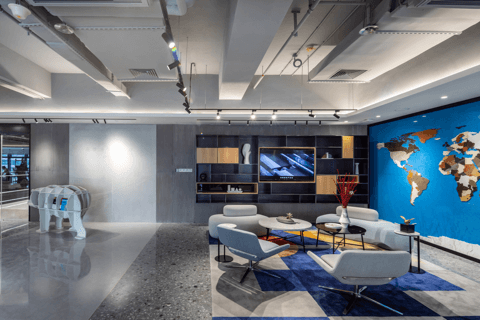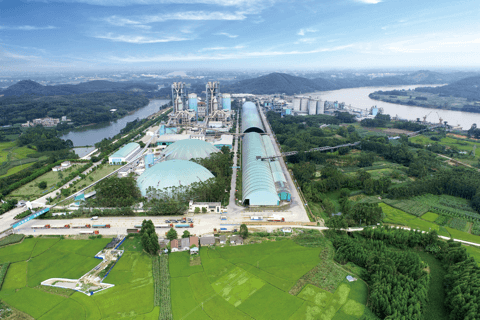China Resources Cement consciously fulfills the environmental responsibility and leads the development of green industry. The Company adheres to the Group's 5M development philosophy, and resolutely fights and wins the “Blue Sky Protection Campaign” with standard requirements of "loving cement, understanding specialties, being able to manage, innovate and contribute", as well as the craftsman’s spirit of striving for excellence.
Since 2012, through six years of exploration and research, CR Cement has successfully developed the domestic filter media made of ultra-fine denier polyimide fibers, which has been used in environmental friendly dust removal for high-temperature exhaust gases in cement kilns. The Company therefore has achieved the goal of ultra-clean emission and has reached to the international leading level in this aspect, reversing China’s passive position of relying on imported large-scale bag filter media and filling the domestic gap. The Company successively won the first prize in 2014 Environmental Protection Science and Technology Award offered by the Ministry of Ecology and Environment of China and the second prize in 2015 Science and Technology Award of the Chins Building Materials Federation. It has also obtained one utility model patent authorization and an acceptance of application of invention patent.
This technical achievement was recommended to be included in the Premier’s Fund project of the State Council, the “Catalogue of recommended technologies for air pollution prevention and control of building materials industry in Beijing-Tianjin-Hebei Region and ‘2+26’ cities”, and has profound significance in respect of energy saving and emission reduction of China’s industrial manufacturing industry, as well as realizing green development.
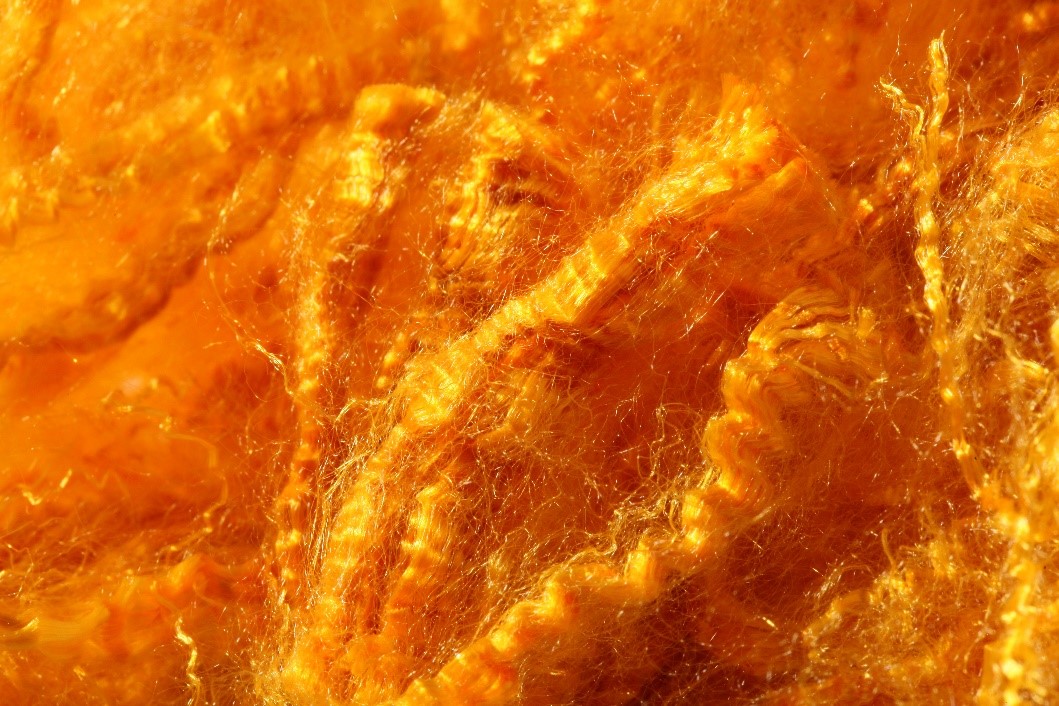
The opening ceremony of the Hong Kong-Zhuhai-Macau Bridge was held on the morning of 23 October 2018 in Zhuhai, Guangdong. President Xi Jinping attended the ceremony and announced the official opening of the bridge. The Hong Kong-Zhuhai-Macau Bridge straddles across the Lingdingyang Bay, connecting Hong Kong to the east and Zhuhai and Macau to the west. The Bridge, which is the first mega sea-crossing transportation project built jointly by the governments of Guangdong, Hong Kong and Macau, has a total length of 55km. The Bridge broke the century-old practice and set a service life design of 120 years. It is located at the intersection of Lingdingyang Bay of Pearl River Delta and Pearl River Basin, which is a sea area with extremely complex natural conditions such as ocean current, waterway, seabed and climate and requires high degree of anti-corrosion. Hence, it has higher requirements for the durability of the foundation of the concrete-steel structures.
According to the construction requirements, China Resources Cement Holdings Limited adopted customized production control process and raw material quality control for concrete of different parts of the Hong Kong-Zhuhai-Macau Bridge including island tunnel construction, precast immersed tube and concrete pile foundation, and designed a high-performance Portland cement that satisfies the specific requirements for the project by applying the latest technologies and ratios. In respect of optimizing formulation and prefabricated production, it prevents concrete cracks to the largest extent, and reaches a new high in the industry in terms of high impermeability, high freezing resistance, high process resistance to reinforcement corrosion and corrosion resistance. In the meantime, the construction quality was strictly controlled, the post-maintenance was strengthened, and the compatibility of concrete was maximized such that the performance of concrete components was several times improved to achieve the goal of resisting reinforcement corrosion by the chlorine ion, guaranteeing the requirement of a 120-year of service life.
The Company has started to supply cement products to projects of the main bridge section of the Hong Kong-Zhuhai-Macau Bridge since 2011, including the construction of the main body, the construction of precast immersed tubes for the island tunnel and other major projects. The actual supply of cement amounted to 1.3 million tons, which accounted for 86.7% of the cement used in the main bridge section.
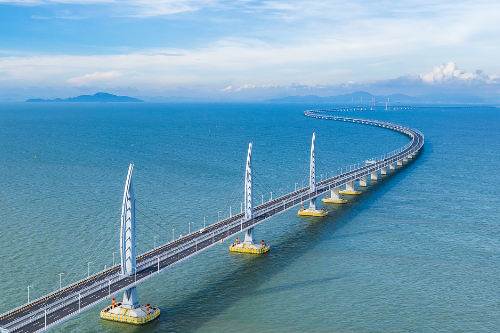
Pingnan cement limestone was a sunken concave mine. Due to the adjacent water on three sides of the mine and the geological development of the underground karst, more underground water flowed into mine pits following the deepening of the mining depth, the water influx reached to 326000m3/day. These caused the collapses of factories, nearby farms, villages and roads, and other secondary geological disasters such as building foundation settlement, structural cracks, dry ditch and water leakage of farms and ponds which had severe impacts on the production and operation of the mine. Hence, through the cooperation led by CR Cement with Shandong University, we researched and invented a set of flood prevention technologies, which is through “discontinuous curtain intercept valve + exploration and blockage of key channels + control water flow and water speed reduction via grout pad”. This achievement has been identified by the expert group, which was composed by Mr Qian Qihu and three other members of the Chinese Academy of Engineering, as “reaching the international leading level”. This technology has successfully been applied to the first phase of the underground water treatment project at limestone mine pits in Pingnan company, blocking the water inrush points and saving the pumping cost of 3.5 million/ year. It also obtained remarkable achievements in the society, for example, it effectively solved the risks of nearby buildings collapsing, thoroughly mended the local ecological environment and maintained the good social reputation of CR Cement. This project was an important reference for geological disaster management and project construction management in complex karst regions.
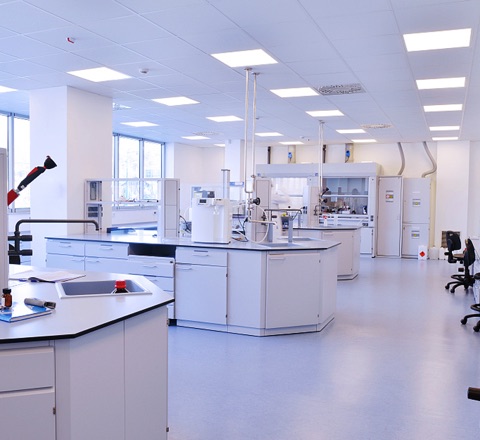
CR Cement jointly developed China’s original “biomechanical pretreatment + hot furnace incineration” waste disposal technology, “internal sewage sludge drying + co-processing in cement kilns ” sludge disposal technology and “mechanical crushing and pretreatment + slurry plump for incineration” technology, which are applied to different environmentally friendly co-processing projects of solid wastes in cement kilns respectively. The co-processing projects not only fix the pain point of the “siege of solid waste”, but also achieve zero emission of pollutants, making cement plant a symbiosis of the city. Currently, there are 9 projects in operation with a total disposal capacity of 1.85 million tons/ year, covering four areas including solid waste, urban sludge, hazardous waste and industrial waste residue. As of February 2019, the accumulated disposal amount reached to 3.17 million tons (of which urban sludge was converted by 80% moisture content). As of September 2019, the Company had a total of 7 co-processing projects. From January to September 2019, the Company disposed 135370 tons, 173500 tons and 5100 tons of solid waste, urban sludge and hazardous industrial waste respectively.
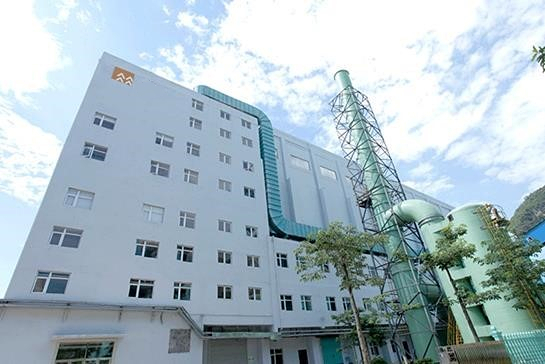
The Ministry of Finance of China clearly stated in Document No.27 in 2014 that they encouraged enterprises to fully utilize the advantages of specialized division of labor and information technology to build a financial shared services centre, while accelerating the transformation of accounting functions from auditing to decision making, and the effective development of the management of accounting tasks. Taking this as an opportunity, the finance department of the Company commenced the pilot project of the financial sharing management model in Fujian since early 2014, and viewed financial sharing as an important starting point of financial transformation. After three years, the Financial Shared Services Centre of CR Cement was officially established, realizing full coverage from headquarter to all operating regions, and becoming the first financial shared service centre of the Group which has the broadest coverage and the most obvious project benefits.
The structure of financial personnel was optimized through centralizing the processing of large amount of auditing businesses such that the performance indicators were improved. The number of financial personnel was reduced from 460 to 393 after financial sharing, with an attrition rate of 15%. Auditing personnel decreased from 79% to 35%, a reduction of 44%. This broke the Company's practice of self-determining approval process, consolidating 9 major processes and 61 sub-processes, and realizing the solidification and standardization of the approval process in the holdings, regions and production plants.

